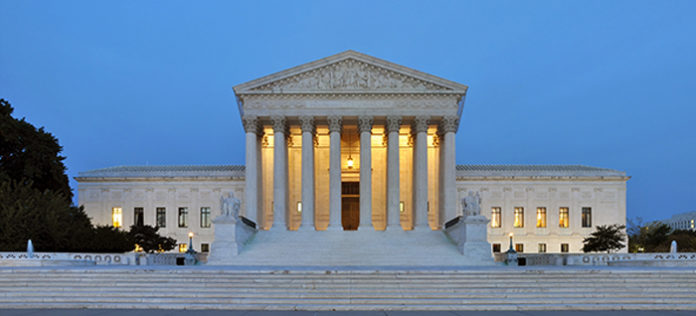
A Colorado web designer is asking the U.S. Supreme Court to hear her case and overturn a recent 10th Circuit ruling that could force her to create websites that conflict with her religious beliefs. The case raises constitutional questions left unanswered by the court’s narrow ruling in Masterpiece Cakeshop v. Colorado Civil Rights Commission.
The 10th Circuit Court of Appeals concluded in July that Lorie Smith, owner of web design company 303 Creative, could be compelled under the Colorado Anti-Discrimination Act to make websites that celebrate same-sex marriage. Smith says that CADA violates her First Amendment rights to free speech and free exercise of religion by forcing her to create websites that offend her Christian beliefs.
In her Sept. 24 petition to the Supreme Court, Smith said she wants to design wedding websites that reflect her belief that marriage should be between a man and a woman and she would like to post a statement explaining that she can only create sites consistent with these views. However, CADA requires her to make websites celebrating same-sex marriage and prohibits her from posting the statement, Smith says, even though she is willing to create websites for anyone — as long as the sites don’t contain messages that conflict with her beliefs.
Smith, who is being represented by conservative Christian group Alliance Defending Freedom, is asking the high court to consider whether applying a public accommodation law — in her case, CADA — to compel an artist’s speech violates the First Amendment’s free speech and free exercise clauses.
It’s not ADF’s first time challenging CADA. The organization, which the Southern Poverty Law Center has deemed an anti-LGBTQ hate group, represented Masterpiece Cakeshop owner Jack Phillips, whose refusal to make wedding cakes for same-sex couples sparked a legal battle that went all the way to the Supreme Court. In its 2018 decision, the high court ruled in Phillips’ favor but did so on narrow grounds, finding the Colorado Civil Rights Commission showed hostility toward Phillips when handling his case.
That left bigger questions about the tensions between the First Amendment and anti-discrimination laws unresolved. Since the Masterpiece Cakeshop decision, the ADF has tried to take similar cases to the Supreme Court. In July, the court declined to hear a case from another ADF client, a florist in Washington state who refused to provide flowers for a gay couple’s wedding.
Smith says the Supreme Court should take her case because the 10th Circuit’s decision “exacerbates a three-way split over free-speech defenses to public-accommodation laws.” The 10th Circuit and Oregon Court of Appeals have concluded that public accommodation laws can compel creative speech under heightened scrutiny, according to Smith’s petition, while the 8th and 11th Circuits and the Arizona Supreme Court have reached the opposite conclusion. Meanwhile, several other courts, including the New Mexico Supreme Court and Washington Supreme Court, have held that commercial artistic creations are conduct, not speech, and the First Amendment therefore doesn’t offer protection, the petition states.
In its 2-1 decision, the 10th Circuit Panel concluded that CADA’s public accommodation clause, which makes it unlawful for a business to refuse service to someone due to sexual orientation, satisfies the strict scrutiny test required for a law that compels speech. “Colorado has a compelling interest in protecting both the dignity interests of members of marginalized groups and their material interests in accessing the commercial marketplace,” said the majority opinion. According to the majority, custom goods and services are akin to a monopoly and raise “unique anti-discrimination concerns.”
“It is not difficult to imagine the problems created where a wide range of custom-made services are available to a favored group of people, and a disfavored group is relegated to a narrower selection of generic services,” stated the 10th Circuit opinion. “Thus, unique goods and services are where public accommodation laws are most necessary to ensuring equal access.”
In her petition to the Supreme Court, Smith said the 10th Circuit’s reasoning was “bizarre” and “turns free-speech protections on their head.” The court’s monopoly rationale could also extend beyond artists and small businesses to regulate the editorial decisions of social media and major news outlets, from Facebook to MSNBC, the petition states, which are “much more like monopolies than Lorie.”
Smith says that her case is an “ideal vehicle” to answer First Amendment questions that will continue to arise until the Supreme Court settles them once and for all. “The constitutional issues here have sufficiently percolated,” the petition says. “Lawyers, law professors, litigants, and lower courts have already analyzed many cases like this one. And this Court was prepared to rule on them in Masterpiece more than three years ago. Delay might produce more opinions, articles, and victims, but not more insights.”

